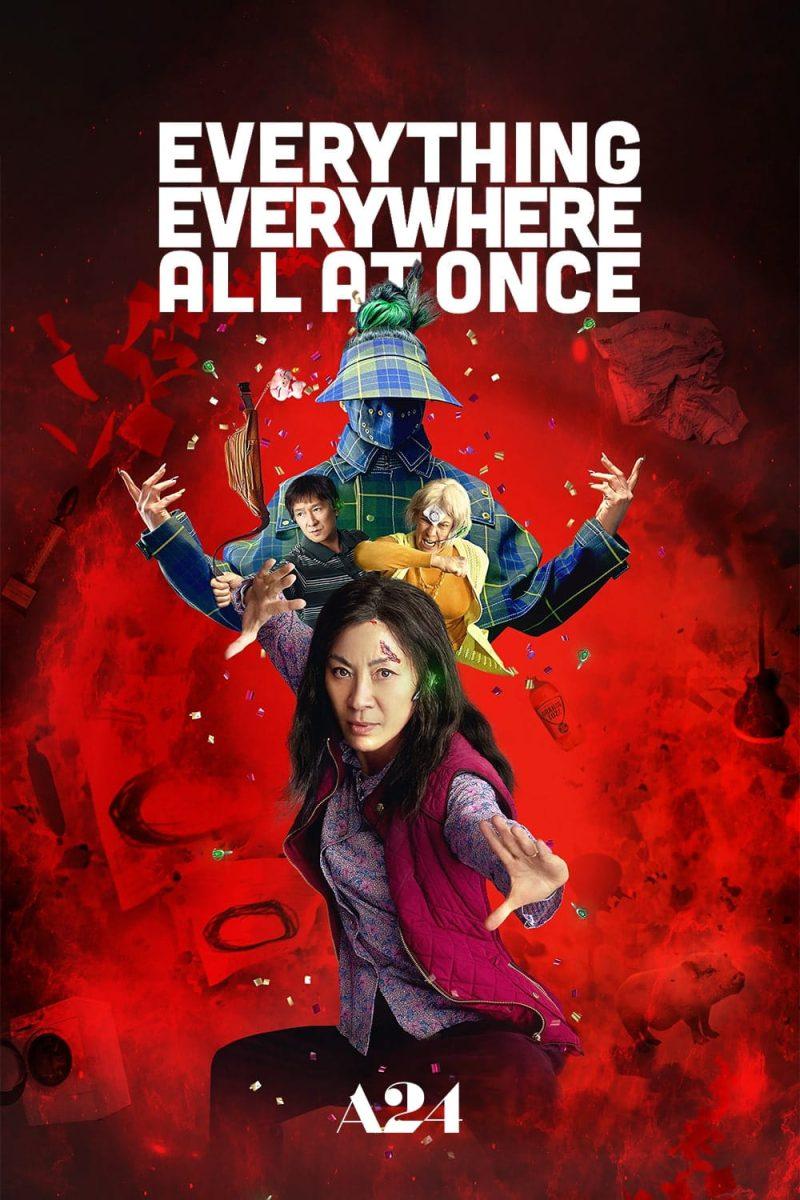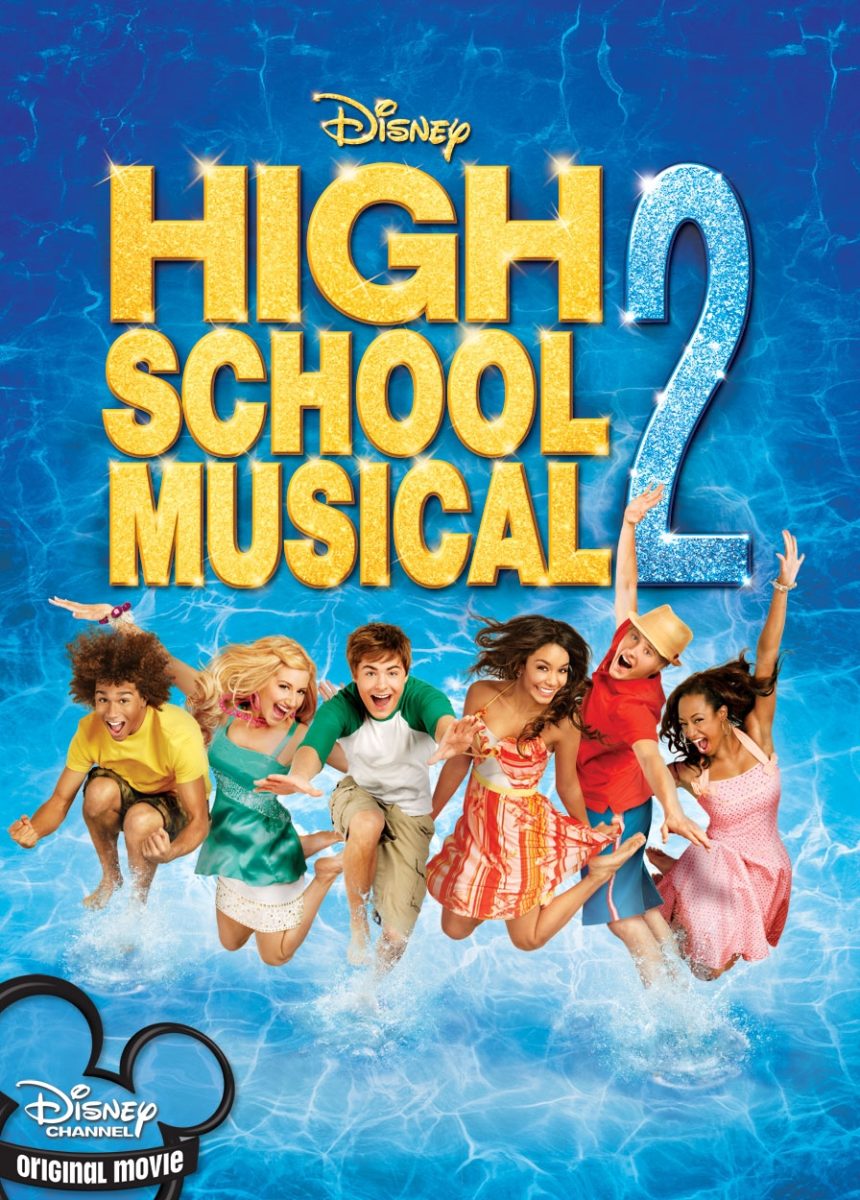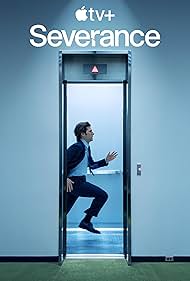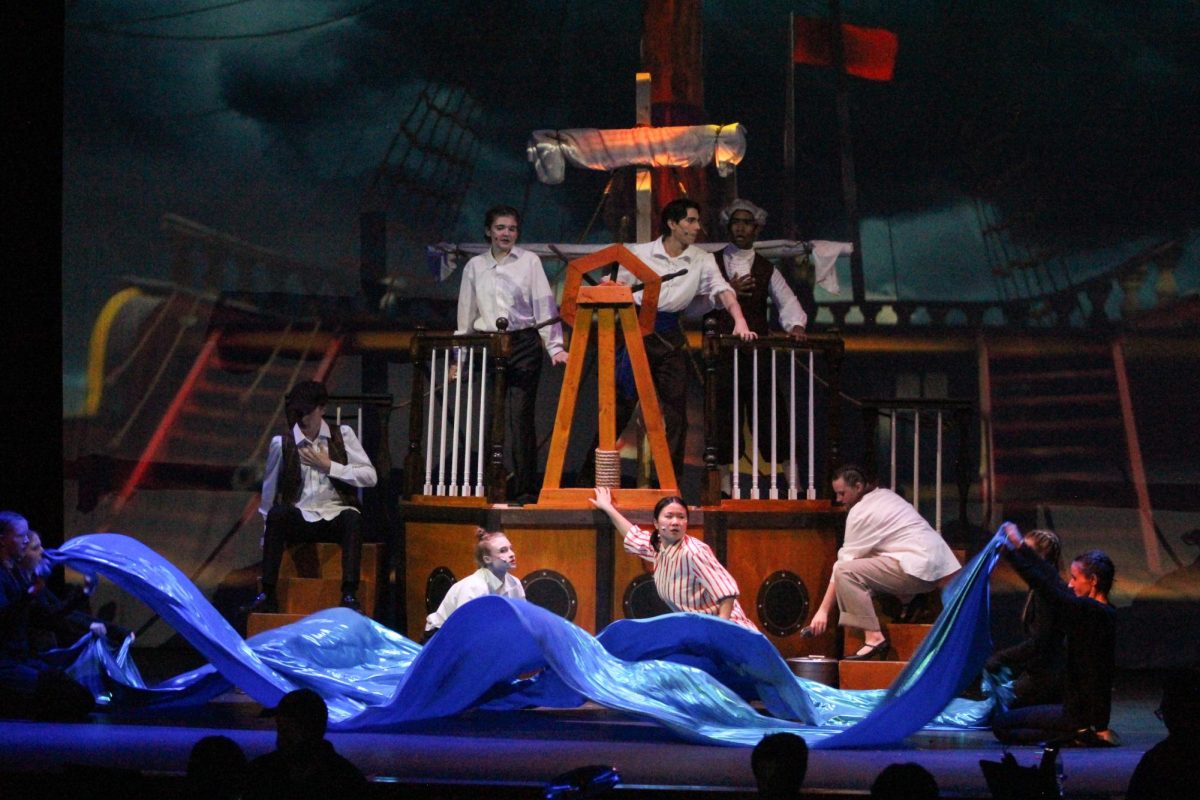(‘23)
Widely absurd, yet painstakingly touching, describes the Oscar-winning 2022 film, Everything Everywhere All At Once. Initially exploring the trials and tribulations of a middle-aged Chinese immigrant, the movie seemed to be illustrating issues of intergenerational trauma, the failed American Dream, and the common tolls of taxes, marriage, and laundry. However, the illusions of normalcy and dysfunctional family quickly recede to the background as an alternate version of the husband Waymond, played by Ke Huy Quan, reveals to the protagonist, his wife, Evelyn Wang (Michelle Yeoh) that an interdimensional calamity requires Evelyn to save the multiverse and reality.
The entire first half of the movie encompassed me watching with my mouth hung open, dumbfounded, and confused. The interdimensional plot of the movie and the constantly changing perspectives of different versions of the characters in the multiverse left it very hard for viewers to follow along. While undoubtedly imaginative, the concept of connecting to various human consciousnesses in other dimensions while staying in your own reality was perplexing and complicated, especially as the movie bounced back and forth between realities without much explanation. I constantly had to rewind to figure out what was going on; yet, perhaps that was the goal of the directors—to put viewers in a similar state of bewilderment as Evelyn to capture the chaos and uncertainty of her internal journey. As Evelyn ventures into her mind and this interdimensional world, she contemplates her failures, relationships, and what could have been. She sees different versions of herself and different successes and lives she would have lived if she had made different choices. Michelle Yeoh brings so much life into this character and really carries the film. Her wide range of expertise, from her martial arts skills to her innate ability to tap into emotion, makes this film Oscar-worthy.
As the source of the danger is revealed to be a powerful being known as Jobu Tupaki, who takes the shape of Evelyn’s and Waymond’s daughter, Joy, this nonsense starts to be revealed as a metaphor for something much deeper, while still maintaining its humorous charm. Jobu reveals essentially her “doomsday” device—the everything bagel—which functions like a black hole vortex. The everything bagel as a plot device represents both everything we could ever want, but also that it is futile to try and control every aspect of your life. When all of the dreams, aspirations, experiences, and emotions of the everything bagel become too much, the hole in the middle seems to be Joy’s/Jobu’s way out. This metaphor is referring to the hopelessness of depression and suicidal thoughts. As said by Jobu, “The bagel is where we finally find peace.” This weird multiversal conflict directly relates to Evelyn’s family life, as Joy suffers from constantly trying to please her mother and accept her queerness while battling internal demons. Evelyn, too, almost reaches a breaking point and succumbs to the bagel as she finds that there is not much worth living for as her marriage begins to dissolve, she loses her business, and she grows tired of constantly trying to fit herself into this box of perfection. However, her husband reminds her that although it is not easy, there is strength in love and compassion. Through Waymond’s reminders, she is able to pull herself back from this abyss and is eventually able to reach out to support her daughter/Jobu. Strangely enough, in a last battle, Evelyn defeats Jobu’s army with googly eyes (white with a black eye in middle), a visual opposite to the bagel (black with white in middle). Resembling the Chinese Yin and Yang, these two pieces of imagery promote a balance. Though these metaphors are so profound, it is reflected in absurd and irrational imagery that is strange for even the intended humor. Although the visuals and special effects were impressive and unforgettable, there is no way to explain how weird some of the scenes are; you just have to see for yourself.
As my father put it, some could compare this movie to be as disastrous as “Trolls World Tour”. The movie is not for everyone, especially those who are more conservative in cinema and only see it for face value. I too was questioning how this movie could have possibly won an Oscar. This 2+ hour film took home Best Picture, Best Film Editing, Best Director, and Best Original Screenplay at the Oscars. In addition, Michelle Yeoh won Best Actress and Ke Huy Quan won Best Supporting Actor. This movie was the star of the 2023 Oscars, yet I found myself cringing at some parts and asking myself “What the hell am I watching?” However, the last third of the movie brought the film together, proving the acting prowess of the cast, and the touching, relatable sentiments of finding meaning and hope in life when constantly at the edge of a cliff. The metaphor of the everything bagel and being sucked into a hole of nothingness reflects the current mental health crisis, especially among teens, who are looking for someone to pull them out of this abyss. Among the older generations, the film also explores the pressures of cultural expectations, responsibility, personal fulfillment, and parenting as Evelyn must overcome the rejection and judgment she experienced in her past to extend compassion and understanding to her daughter, starting a new generational trend of unconditional love. It is so easy to be tempted to succumb to nothingness, especially in a world that constantly tests your limit. This artistic movie shows how life can be taxing, but kindness can empathy can ease the pain.








